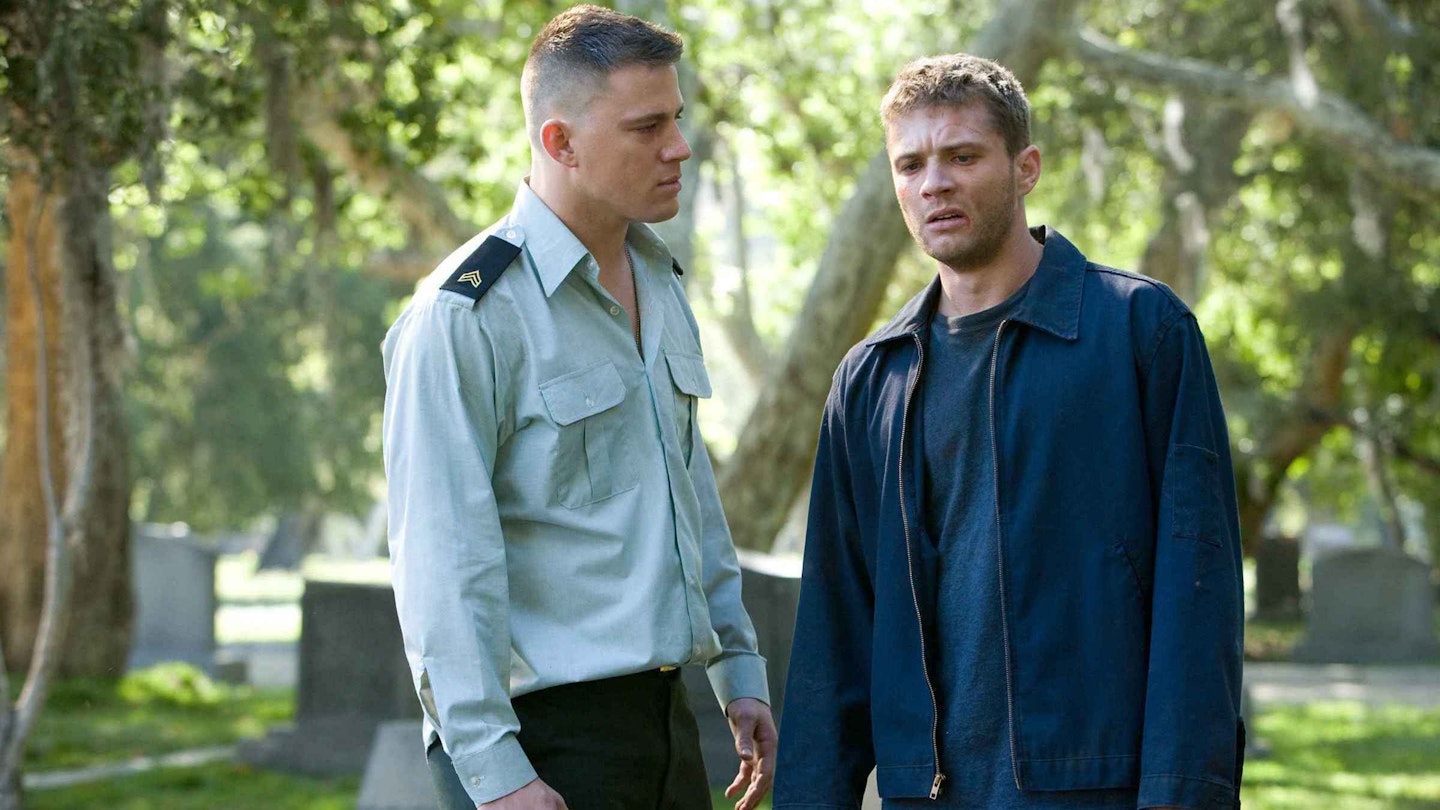The funny thing about the current wave of ‘Iraq War movies’ is that they’re rarely set in Iraq, and they’re almost never about the war - at least ostensibly. Only Redacted and Battle For Haditha have even arguably portrayed combat in Iraq, and they’ve shown such extreme cases that it barely counts. Stop Loss largely carries on that trend: this is an almost-entirely Stateside drama, and the soldiers depicted have deeper conflicts within themselves than they do with the enemy.
Ryan Phillippe takes the lead role of Brandon, a young soldier who has done his duty and is looking forward to resuming his life in Texas. When he is compulsorily re-enlisted under the Army’s “stop loss” procedure, he flips out and determines to fight the draft. He leaves behind his best friend Steve (Channing Tatum), who’s having trouble readjusting to civilian life, and his vulnerable brother-in-arms Tommy (Joseph Gordon Levitt). The only one who accompanies Brandon, in fact, is Steve’s girlfriend Michelle (Abbie Cornish), who’s increasingly worried by Steve’s behaviour.
What follows is a mixture of road movie, wartime flashback and Deer Hunter-lite drama among the guys back home. Brandon, who’s also having trouble dealing with his wartime experience even if he’s holding it together, almost literally snaps when told that he’ll have to go back to Iraq. A patriotic soldier and polite son, he’s suddenly shouting at his commanding officer - and shouting “Fuck the President” at that. Whatever we’re later told about the stop-loss procedure - which has reclaimed over 80,000 US soldiers for further tours in Iraq during the last several years - it’s clear that Brandon’s objection is not some matter of principle, but simply the age-old, knee-jerk sense that this is not fair.
Phillippe’s at his best in the lead role, giving depth and humanity to a character who could have been a mere cipher, the model soldier who does his duty and stands by his friends until he finds he can do no more. He gets excellent support from Channing Tatum, who never strays into stereotype in a role that’s more complex than it looks. The only weak link in the cast is Cornish, who increasingly seems like a rather blank slate - the role of Michelle requires more than a frown and an expression of puzzlement.
But despite the strong turns and solid direction from Boys Don’t Cry’s Kimberly Peirce, the story is weak. While the characters come across clearly, the character arcs - especially that of Gordon-Levitt’s Tommy - feel familiar, the beats (visiting the family of a dead comrade, contacting the wounded friend) clichéd and the ending never really in doubt - although moving when it comes. And the prettiness of the cast is a distraction. While the sheer good looks on offer mean that this has a better chance of reaching the younger generation, it also loads dice that really don’t need it. The policy of stop loss is self-evidently legally dubious and morally unsound; we don’t need to see America put soldiers this brave and beautiful in harm’s way to know it.
